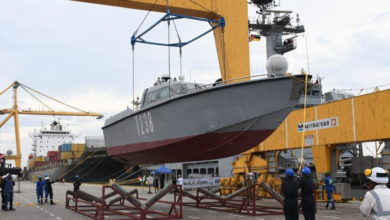Police in Mozambique said on Sunday, June 3, that they killed nine “insurgents” in the country’s far north after 10 people were decapitated by suspected jihadists in the region last weekend.
Cabo Delgado province, which is expected to become the center of the country’s nascent natural gas industry after several promising discoveries, has seen a number of deadly attacks by suspected radical Islamists since October.
“Nine insurgents were killed” on Saturday, said a police official who spoke to AFP on condition of anonymity, adding that more details would be given on Tuesday.
According to a police spokesperson interviewed on state-run TVM, security forces killed two members of the group, preventing them from attacking a local village, before killing a further seven.
Assault rifles and Arabic-language documents were recovered from the scene, the spokesperson added.
On May 27, a group of suspected jihadists, known locally as “al-Shabaab,” attacked two small villages near the Tanzanian border and decapitated 10 residents. National police spokesperson Inacio Dina vowed that police would “hunt and find them and take them to the court.”
The nine insurgents were killed close to the site of last week’s beheadings.
The Mozambican al-Shabaab, which has no known link to the Somali group of the same name, was described by witnesses to AFP as a jihadist faction allegedly responsible for a number of attacks in Cabo Delgado.
The group is believed to be responsible for a deadly October attack on a police station and military post in the town of Mocimboa da Praia. Two police officers died and 14 attackers were then killed in what was believed to be the first jihadist attack in the country.
More than 300 people suspected of having ties to the group have been arrested since October, with more than a third still held, according to the authorities.
The country’s north has largely missed out on the economic growth of the last 20 years, and the region sees itself as a neglected outpost, giving the radical al-Shabaab-style ideology a receptive audience.









